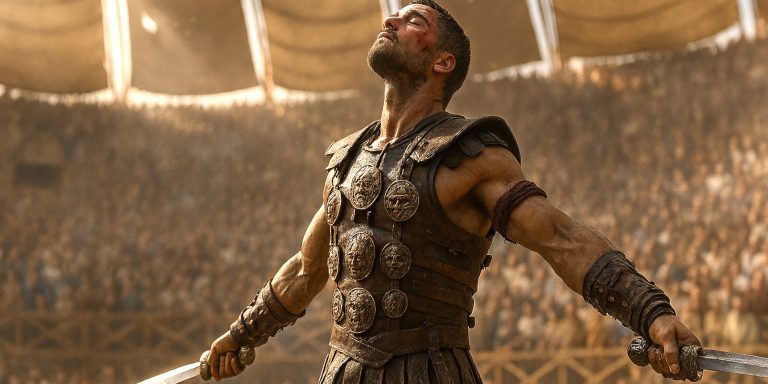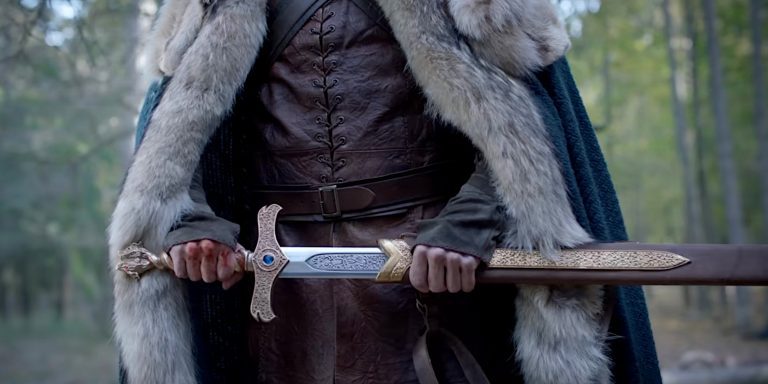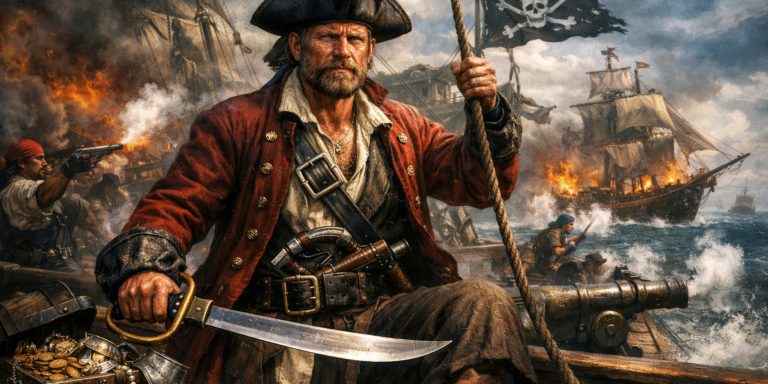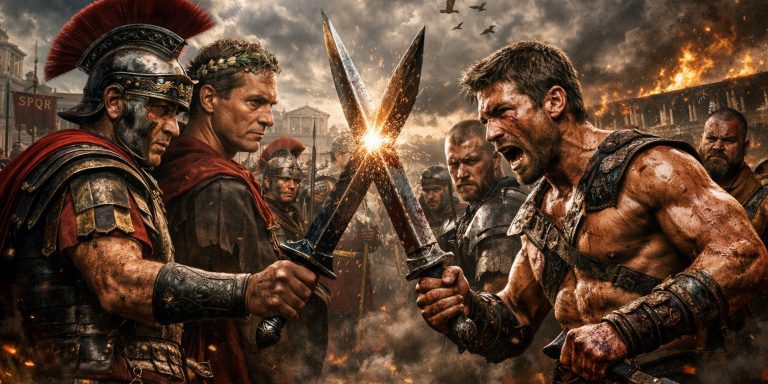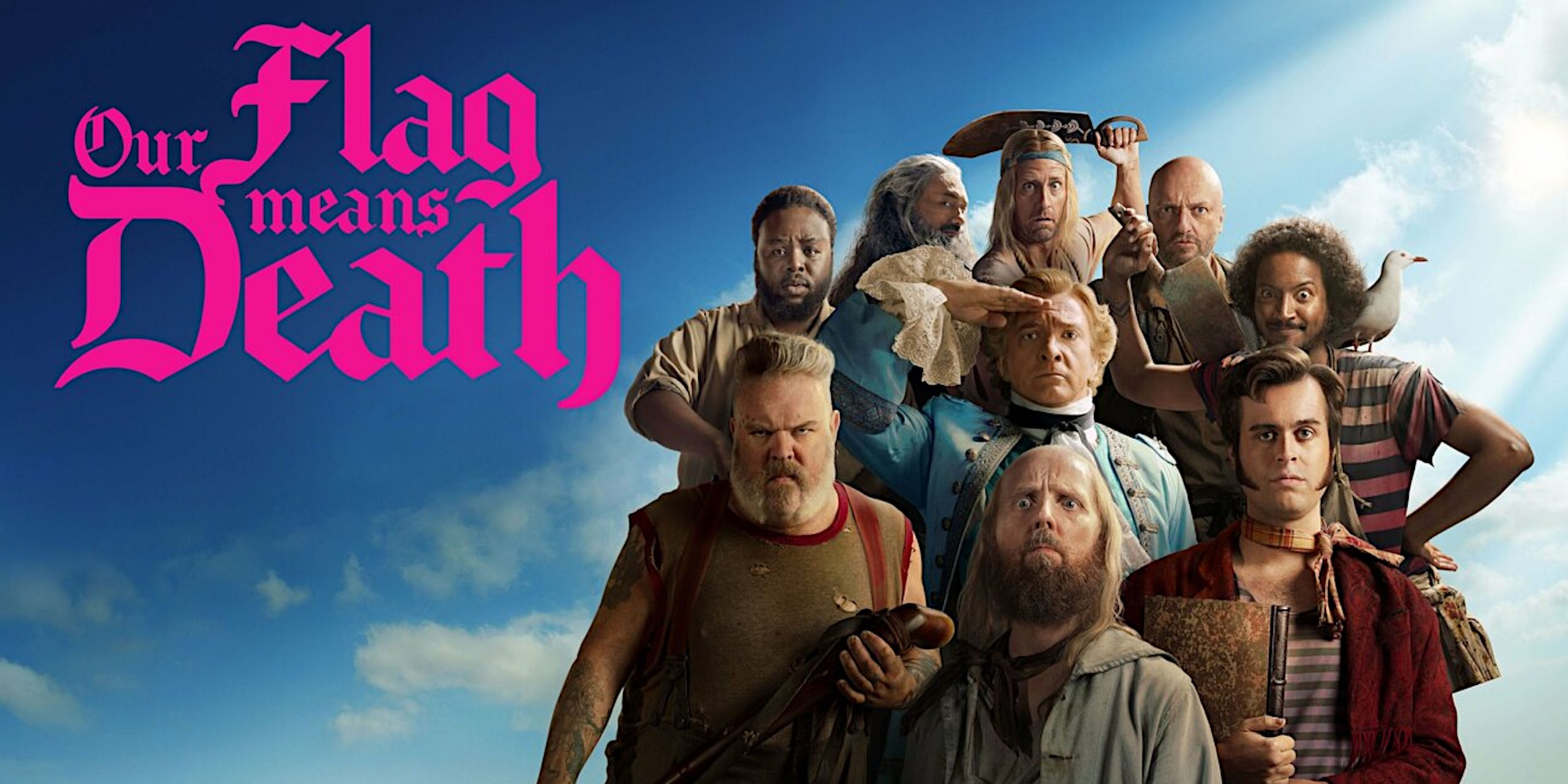
When you think pirates, you probably imagine treasure maps, rum-soaked songs, and maybe Johnny Depp staggering around with eyeliner. Taika Waititi had no interest in doing that again. In Our Flag Means Death, he takes the pirate genre, flips it, throws in a slow-burn queer romance, and still makes room for sword fights and ships on fire. It is not history as it was, but history as it could have been if pirates had therapy and decent tailoring.
Rewriting the Pirate Myth
Traditional pirate films lean on grit and swagger, but Waititi’s vision is more chaotic, more tender, and surprisingly grounded in human insecurity. His Blackbeard is not the untouchable devil of the seas but a man with a midlife crisis, trying to work out who he is when he steps off the legend. The show becomes less about treasure and more about identity.
Stede Bonnet, the so-called Gentleman Pirate, represents everything wrong and right about that identity. He is terrible at being a pirate, but brilliant at being vulnerable. In Waititi’s hands, piracy becomes a stage for experimenting with class, masculinity, and what it means to live outside society’s rules.
Comedy as a Weapon
Waititi does not treat comedy as a side dish. Jokes sit at the centre of every mutiny, duel, and shipboard meltdown. By laughing at the absurdity of pirate life, the show avoids the stiffness of costume drama. Instead of speeches about honour, you get conversations about hobbies, trauma, and how to stitch a wound without fainting.
This humour is not random chaos. It undercuts toxic bravado and shows that pirate crews are still just messy little communities trying to survive. The laughs sting, but they also heal.
Love on the High Seas
What makes Waititi’s pirate vision stand out is the romance between Blackbeard and Stede. It is not played for shock value or quick laughs. It is awkward, tentative, and deeply human. The series lingers on stolen glances and moments of shared softness in between sword fights and bloodshed.
In most pirate tales, love is a side plot. Here, it is the treasure. This is a pirate story that dares to say that the most dangerous thing on the ocean is vulnerability, and the bravest act is admitting you care.
A Pirate Lens
Waititi’s take resonates with younger audiences because it does not pretend that pirates were cool heroes. It shows them as people who were traumatised, isolated, or running from something. The “chosen family” vibe feels instantly recognisable to anyone who has ever built their own community outside the mainstream.
The show also refuses to take itself too seriously. Sword fights and slapstick exist side by side with heartfelt conversations. It is a reminder that history does not have to be told in sepia tones to matter. Sometimes it is funnier, queerer, and more alive when you mess with the rules.
Legacy of Waititi’s Vision
By blending parody, romance, and self-awareness, Taika Waititi did not just reinvent pirates on screen, he broke open a genre that had been sailing in circles for decades. His vision proves that pirate stories can be more than men shouting “Arrr” while swinging cutlasses. They can be intimate, messy, funny, and still packed with cannon fire.
Whether Our Flag Means Death is your kind of comedy or not, it set a new standard. The show reminded audiences that pirate legends are not fixed in stone. They are stories, and stories are meant to be retold.
Watch the trailer:

